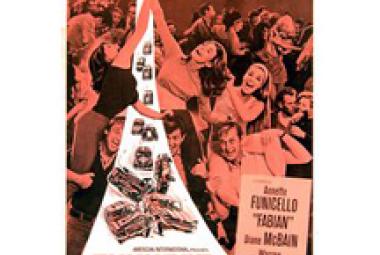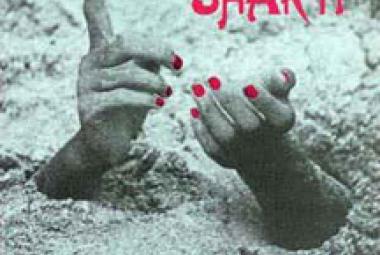Traffic was an English rock band, formed in Birmingham in 1967. The group formed in April 1967 by Steve Winwood, Jim Capaldi, Chris Wood, and Dave Mason. They began as a psychedelic rock group and diversified their sound through the use of instruments such as keyboards like the Mellotron and harpsichord, sitar, and various reed instruments, and by incorporating jazz and improvisational techniques in their music. After disbanding in 1969, during which time Winwood joined Blind Faith, Traffic reunited in 1970 to release the critically acclaimed album John Barleycorn Must Die. The band’s line-up varied from this point until they disbanded again in 1975. A partial reunion, with Winwood and Capaldi, took place in 1994. Traffic was inducted into the Rock and Roll Hall of Fame in 2004. (More from Wikipedia)
In the same time period, Stevie Winwood was feeling hamstrung in the Spencer Davis Group, where he had been their lead singer for years. He had wanted to introduce a more experimental, jazz-inflected sound into the band; eventually he left the group and formed his own band called Traffic in 1967.
When Traffic broke up temporarily in 1969, Stevie Winwood began jamming with Eric Clapton; they had played together previously in the Powerhouse.
* * *
After appearing only at the Concert for Bangladesh that George Harrison organized in 1972, Pete Townshend of the Who brought together an allstar line-up for a 1973 concert intended to bring Eric Clapton out of hiding and to help him kick his habit. Known as the Rainbow Concert, musicians on hand include Rick Grech and Stevie Winwood from Blind Faith, Jim Capaldi (who had co-founded Traffic with Winwood), Anthony “Reebop” Kwaku Baah (a percussionist from Ghana who played with Traffic and also the German band Can), Ron Wood (then in Faces), and drummer Jimmy Karstein (who was on hand for the final album by Buffalo Springfield).
* * *
Meanwhile, Ginger Baker was putting together a supergroup and a double album of his own. Ginger Baker’s Air Force – described in Wikipedia as a rock-jazz fusion band – was organized from the ashes of Blind Faith and featured the other three musicians in the band besides Eric Clapton: Ginger Baker (drums, percussion and vocals), Stevie Winwood (organ and vocals), and Rick Grech (violin and bass guitar). Others on hand in the 10-piece band include Baker’s former bandmate Graham Bond, Denny Laine (one of the original members of the Moody Blues – he sang lead on their early hit “Go Now” – and later a key member of Paul McCartney and Wings), Chris Wood (another founding member of Traffic), and Wood’s wife Jeanette Jacobs (previously in the New York band the Cake).
(May 2014)
* * *
One glance at the album cover for Saved proves beyond doubt that Bob Dylan was serious with his Christian period. The album art is by a veteran in that field, Tony Wright; two of his designs – for Traffic’s The Low Spark of High Heeled Boys (1971) and Steve Winwood’s Arc of a Diver (1980) – were named among the 100 Greatest Album Covers by Rolling Stone magazine.
In order to downplay the Christian message in the Saved album (if that’s possible), the cover painting was later replaced with a painting of Dylan in performance.
(August 2014)
* * *
For Allmusic, Bruce Eder has this overview of their later years: “Unfortunately, as the records focused more and more on [Mal] Ryder, [the Primitives] became more of a kind of generic cover outfit for English-language songs of all genres. According to annotator David Wells, their R&B orientation gave way to pieces such as ‘Dear Mr. Fantasy’ [by Traffic] and ‘Song of a Baker’ [by Small Faces], but also ‘Love Letters in the Sand’ and (astonishingly) ‘Over the Rainbow’. Their edge was gone and, by the mid-’70s, so was the band.”
(May 2015)















